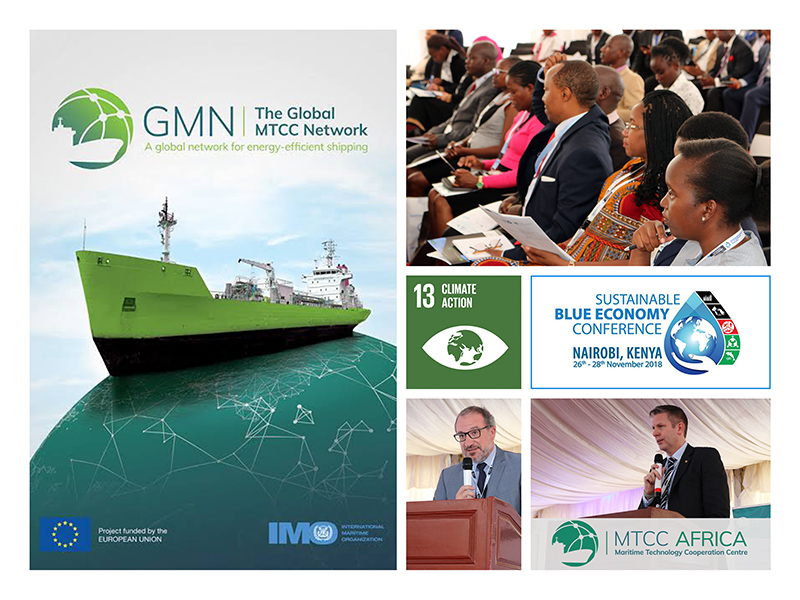The global network of Maritime Technology Cooperation Centres is expanding with a number of branch offices and becoming an integral player in implementing IMO’s initial strategy on the reduction of GHG emissions from ships. This is especially true when it comes to capacity building, technical cooperation and R&D. A 250-strong* crowd attended the MTCC-Africa side-event on Capacity Building for Climate Mitigation in the Maritime Shipping Industry (27 November), during the Sustainable Blue Economy Conference in Nairobi, Kenya (photos).
The event was organized within the framework of the Global MTCCs Network (GMN), a network of five MTCCs established in support of IMO’s Initial Strategy on GHG emissions reduction with the objective of assisting stakeholders and IMO member states through capacity building and technology transfer.
The GMN project is financed by the European Union and implemented by the IMO. In his opening remarks, Mr. Bruno Pozzi, Deputy Head of the European Union Delegation to the Republic of Kenya, , emphasized the importance of the IMO strategy, which calls for a reduction in shipping emissions by at least 50% by 2050 compared to 2008, whilst pursuing efforts towards phasing them out completely, consistent with the Paris Agreement temperature goals.
IMO’s Mr. Fredrik Haag, elaborated on the MTCCs role in implementing follow up actions of IMO’s initial strategy. The MTCCs (both now and in the future) will help ensure that over the next three decades emissions from shipping can be stabilized and reduced. This type of reduction is only possible with initiatives like the GMN and its activities, such as improving energy efficiency through retrofitting existing vessels, something which is currently being piloted by MTCC-Pacific.
The five MTCCs have begun the process of expansion, with MTCC-Asia establishing branch offices in Cambodia (in 2017) and more recently in Myanmar (November 2018), with a third planned for Bangladesh (to open in 2019). MTCC-Pacific is also expanding and is in the process of establishing its branch office in Samoa.
*Attendees included representatives from the European Union, IMO, the Ministry of Transport Infrastructure, Housing and Urban Development of the Republic of Kenya, the host institution of MTCC-Africa (Jomo Kenyatta University of Agriculture and Technology – JKUAT), MTCC-Africa, MTCC-Pacific, as well as regional stakeholders and focal points of the Network from Ghana, Nigeria, Madagascar and Namibia.
